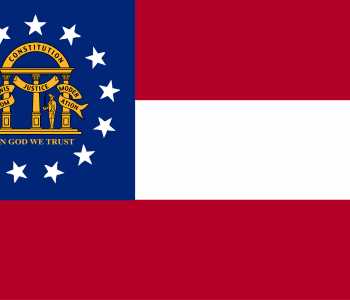Tennessee Business License

Tennessee Small Business Information
Small business is a big deal in the State of Tennessee. New and existing business owners alike can find helpful resources online. For example, the Tennessee Department of Economic & Community Development (ECD) offers great information. This government-sponsored site features many pages devoted to small businesses.
They also have information regarding regional business accelerator programs, entrepreneurship events, and resources to connect investors and business capital. The "How to Start a Business" section offers detailed, step-by-step guidance for getting your company up and running.
Conveniently, Nashville is the home of a U.S. Small Business Administration (SBA) district office. Business owners can use the office's website to find out about upcoming events, news, and other resources for small business. A Tennessee-specific Resource Guide for Small Business is also available for download at the SBA website.
Another excellent resource is the Tennessee Small Business Development Centers (TSBDC.) The TSBDC is part of a national network of SBDCs. Website visitors can find links for free training and advising services, in addition to other useful information.
Get One or More Business Licenses
One of the first steps you will take as you start your new business is to fill out a business license application. Your business license will allow you to legally do business in Tennessee.
Not all Tennessee businesses require a license to operate. However, many types of companies must meet several permits or license requirements. Some licenses and permits get issued and managed at the state level. While other city or county agencies are responsible for issuing different types of licenses and permits.
Tennessee's most critical issuing agencies are:
Alcoholic Beverage Commission
Department of Agriculture's Consumer and Industry Services
Department of Environment & Conservation
Department of Health
In many cases, the agencies mentioned above issue regulatory permits and licenses. Regulatory permits differ from professional and vocational licenses. For instance, the Department of Commerce & Insurance (TDCI), plays a critical role in occupational licensing.
In addition to state-issued licenses, some businesses may require locally issued business licenses and permits. It is up to you to know if you are operating within city limits. Then you will need to ensure you file the proper license for your city.
The local company licenses help with collecting local business taxes. Local licenses must get filed at the appropriate County Court Clerk, the city tax collection authority, or both agencies.
More details are available at the city and county websites where you're conducting business. Knox, Davidson, and Shelby County all provide websites with pertinent information on local licensing requirements. Under state or federal law, some companies may be exempt from needing business licenses to operate their company.
Filing The Right Records For Your Business
When obtaining permits and licenses, you may need to provide legal forms such as your LLC or S-Corp to file records with the State. These official company records must be registered with the Tennessee SOS (Secretary Of State). First, you will need to decide what type of business entity you will be starting.
Will you file as a simple sole proprietorship, or will you be creating a limited liability company or corporation? Each of these will have a different business license. And you should check with an accountant to be sure you are filing the correct business tax return.
Some corporations are required to file quarterly, this is another great question for your accountant. If you have employees you will also need to file for a federal employer identification number (EIN). Doing this will also allow you to avoid using your social security number on all your paperwork. You will use your EIN instead of your SSN, protecting you from possible identity theft.
Filing requirements and further information on this topic are available on the "Business Filing Section" of the Secretary of State's website. It is important for you to know what business structure you want to create as well as ensuring you are filing the correct records for your business.
Local Business Licenses
The state of Tennessee also has some local business licenses that you might be required to file depending on where you live. First, you will more than likely need a "Standard Business License" from the county clerk's office in the county if which you live. If your annual gross receipts are greater than $10,000 then you will file your tax return with the Tennessee Department of Revenue.
Secondly, depending on if your business is located within city limits you might also need a "Minimal Business Activity License" from the Municipal court. This minimal activity license applies to you if you have gross receipts that are greater than $3,000 annually but less than $10,000.
Procure Your Professional License
Members of many professions and occupations require specific additional licensing by the State of Tennessee. The Department of Commerce & Insurance (TDCI) supervises several commissions and regulatory boards for licensed occupations and professions. You can visit the Regulatory Boards section of the TCDI website for a list of occupations the TCDI oversees.
The list covers everything Accountants to Scientists. Each listed item is clickable and links through to detailed pages and the state regulatory board for the specific trade or industry. While the TCDI plays a significant role in overseeing business governance, they are not responsible for all regulatory bodies.
For instance, health-related professions are under the jurisdiction of the Department of Health (DOH) Professional Boards. The Department of Health website provides access for users on their portal. The Board Of Professional Responsibility (BOPR) regulates attorneys and law professionals and operates separately from other agencies in Tennessee.
If you are unsure of which licenses or permits you require to provide professional business services in the State of Tennessee, consult with your legal or business consulting team for expert guidance. It is important to know if your profession requires one of these occupational licenses or if the standard business license is adequate for your business.
Fictitious Or Assumed Company Names
In many cases, business owners don't use their legal names are part of their business name. Business names are part of the Incorporation process. Standard company structure offers flexibility.
LLC's and corporations empower business owners to use one name - usually called the actual name, true name, or registered name - to register the business. Once registered, there's an option to operate using a different name at a later time.
Depending on the way your business is structured, this secondary business name is technically known as a fictitious name, a Trade Name, or "Doing Business As" DBA. In the State of Tennessee, LLC's and corporations are required to file a form with the Secretary Of State if they plan on using an assumed business name.
Registering a Service Mark or Trademark
There are several types of legal marks worth investigating when going into business. Each type of mark holds a specific definition. Famous marks include service marks, trademarks, copyrights, and trade names.
Generally, these distinguishing marks and names differentiate products, services, goods, or company name. Service marks and trademarks are available for registration through the State of Tennessee. Registration with the State isn't a Federal Registration.
For more information, visit the SOS website and visit the Trademarks page. This page contains detailed information on registering your official marks and logos with the correct agencies.
Conclusion
You have a lot of questions as you build your new business. The chamber of commerce is here to help you succeed in your new adventure into entrepreneurship. For additional information refer to the resources above, and remember to check with the chamber of commerce. We are working hard to continue to provide more helpful articles.
FAQ
Do I need a Tennessee state business license?
Tennessee does not require all businesses to have a license. Most licensing is done locally. Tennessee does require that the state licenses certain professions. This includes accountants, real estate agents, land surveyors, and barbers. The Department of Commerce has regulatory boards that regulate occupational licensing. If you fall under the jurisdiction of one of the state regulatory boards, you will need to complete all licensing requirements and certifications before opening your business.






